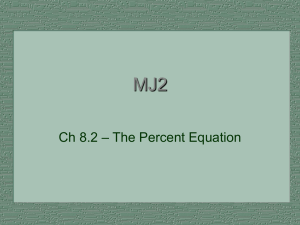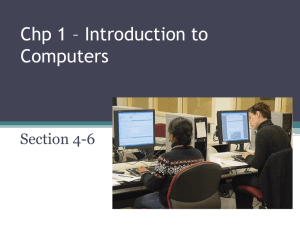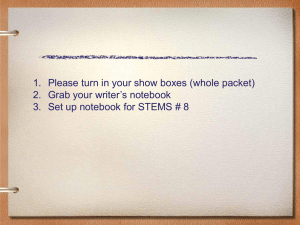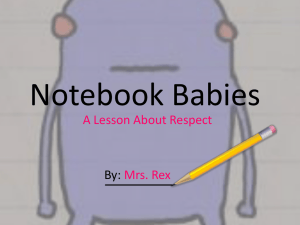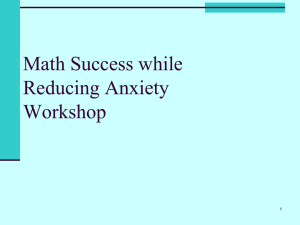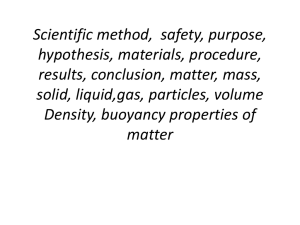Station One – Food Webs and Food Chains Study the 6 examples of
advertisement
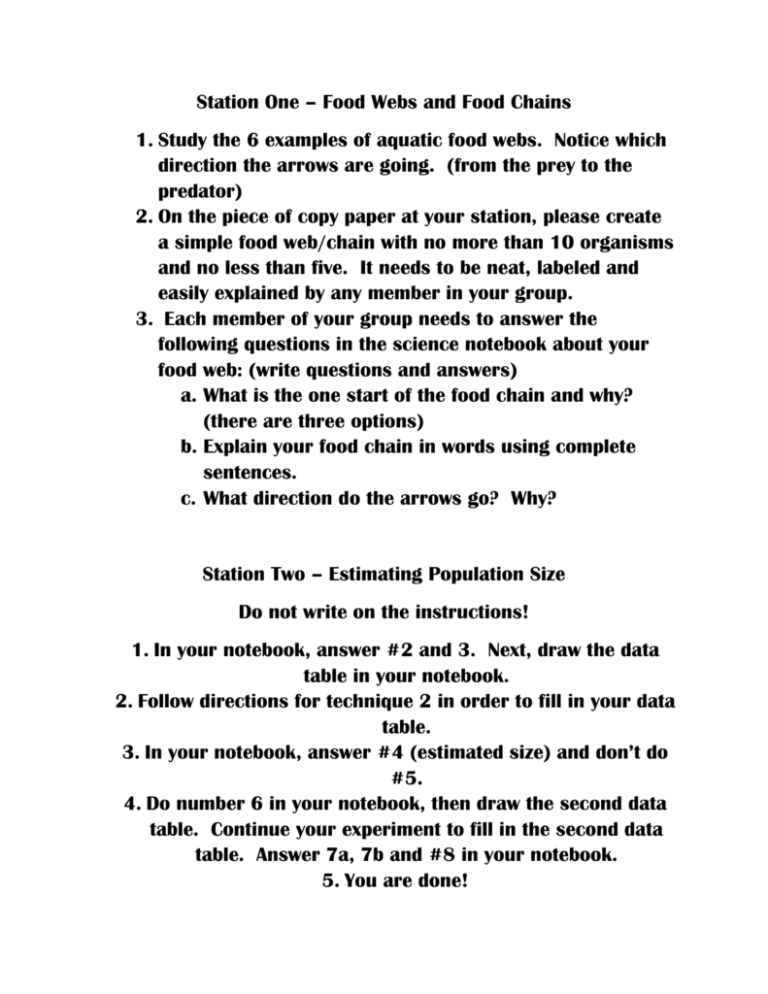
Station One – Food Webs and Food Chains 1. Study the 6 examples of aquatic food webs. Notice which direction the arrows are going. (from the prey to the predator) 2. On the piece of copy paper at your station, please create a simple food web/chain with no more than 10 organisms and no less than five. It needs to be neat, labeled and easily explained by any member in your group. 3. Each member of your group needs to answer the following questions in the science notebook about your food web: (write questions and answers) a. What is the one start of the food chain and why? (there are three options) b. Explain your food chain in words using complete sentences. c. What direction do the arrows go? Why? Station Two – Estimating Population Size Do not write on the instructions! 1. In your notebook, answer #2 and 3. Next, draw the data table in your notebook. 2. Follow directions for technique 2 in order to fill in your data table. 3. In your notebook, answer #4 (estimated size) and don’t do #5. 4. Do number 6 in your notebook, then draw the second data table. Continue your experiment to fill in the second data table. Answer 7a, 7b and #8 in your notebook. 5. You are done! Station Three- Ecosystems Mini-Project 1. Read the introduction with your group 2. You will need to get a netbook for information, so hop up and get yours now! 3. Choose any group (1,2,3,4 or 5) to compare and contrast characteristics of each ecosystem. 4. You will need to draw your own Venn Diagram with at least one picture per ecosystem. 5. Follow the rubric and when you are done, glue into your science notebook. Station 4 - Angry Aliens 1. Each member of your group needs to get a netbook. 2. Google : Angry Aliens Bioman 3. You need to play Angry Aliens and quiz yourself over topics we have discussed this quarter so far. See if you can score a 100% on them all! 4. In your notebook, write three of the questions you answered correctly with the answer written as well. Station - Exploring Ecosystems 1. 2. Read the following statements: a. People should be encouraged to participate in coral reef sight-seeing (snorkeling, scuba diving) ventures to increase their appreciation of this ecosystem. b. Warming ocean temperatures are beneficial to reef formations because they increase coral production. c. It is important to maintain a proper balance of algae in the reef system. Pick a statement to argue. In your notebook, write your statement as your topic sentence in an argumentation for or against the statement. It must be at least 7 sentences with evidence from the internet. Wikipedia, About and Ask are not credible sources. Station Six – Study Jams! 1. Get a netbook and Google Study Jams Symbiosis. 2. Watch the video on Symbiosis and test yourself with the quiz afterwards. 3. In your notebook, write your score and the question and answers that you answered incorrectly. 4. Watch the video on Food Webs afterwards and do the same thing in your notebook that you did for Symbiosis. Station Seven – Web quest 1.You will search the internet for the answers to the web quest. Make sure they are reputable websites!

